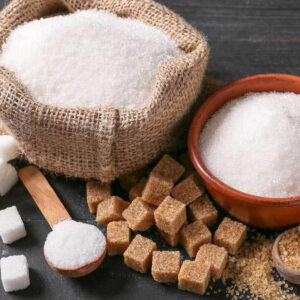Many people compare beet sugar vs cane sugar to understand their variations in flavor and texture.
Exploring the Distinctions being used and Advantages Between Beet Sugar Vs Cane Sugar
In the cooking world, the option between beet sugar and cane sugar is not just regarding sweet taste however involves a nuanced factor to consider of flavor, application, and influence. While both sugars stem from various plants, each undergoes distinct production processes that discreetly affect their features and suitability for numerous dishes. As cooks and customers increasingly prioritize both the ecological and flavor accounts of their ingredients, comprehending these distinctions ends up being crucial. This exploration uses understanding into exactly how each sugar kind can best enhance cooking productions.
Origins and Manufacturing Procedures of Beet and Cane Sugar

Walking stick sugar, on the various other hand, comes from the sugarcane plant, an exotic yard native to Southeast Asia however currently grown in exotic areas worldwide - beet sugar vs cane sugar. The manufacturing of cane sugar begins with the harvesting of cane stalks, which are squashed to launch the juice.

Nutritional Content and Health And Wellness Considerations

When comparing the nutritional material of beet sugar and cane sugar, it comes to be evident that both types basically give the same caloric worths, with around 16 calories per tsp and no significant nutrient diversity. Each is composed nearly totally of sucrose, which is a simple carbohydrate that provides fast energy however does not have vitamins, minerals, or fiber. This similarity includes their influence on health and wellness, especially worrying blood sugar level degrees. Both sugars, when eaten over, can add to elevated blood sugar degrees, a threat factor for diabetes and other metabolic conditions. Additionally, extreme consumption can cause weight gain and oral problems, as both sugars are similarly cariogenic, promoting tooth decay. From a wellness viewpoint, regulating consumption of any kind of sort of sugar, whether from beet or cane, is a good idea to prevent these potential unfavorable impacts on wellness. Thus, neither holds a distinct benefit over the various other in terms of health advantages.
Flavor Accounts and Culinary Applications
In spite of their comparable chemical structures, beet sugar and cane sugar vary subtly in taste, which can influence their usage in different cooking contexts. Walking stick sugar frequently lugs a hint of molasses, also in its polished kind, providing a cozy, caramel-like undertone that boosts baked goods, websites coffee, and chocolate-based dishes. This slight molasses taste is especially valued in the cooking sector for Bonuses adding deepness to sugary foods and breads. On the various other hand, beet sugar is identified by its very improved, neutral preference, making it a functional sweetener that does not alter the taste profiles of recipes. This nonpartisanship is especially useful in fragile recipes, such as light pastries, lotions, and some sauces, where the inherent flavors of various other ingredients are meant to stand apart. Subsequently, chefs and food makers could choose one kind of sugar over the various other based upon the desired flavor end result of their cooking creations.
Ecological Impact and Sustainability
While both beet and cane sugars are acquired from plants, their environmental impacts differ dramatically due to the unique methods of farming and processing required for each. Sugar beet farming typically involves considerable automation, which can increase fossil gas usage and carbon discharges.
Moreover, the handling of sugarcane frequently generates a considerable amount of waste, consisting of bagasse, which, although usable as biofuel, often adds to air contamination if burned inefficiently. Sugar beet handling utilizes even more of the raw materials, causing less waste. Both markets face difficulties in reducing their ecological impacts, however dig this recurring developments in farming practices and waste administration are aiming to improve sustainability.
Economic Factors Influencing the Sugar Market
The economic characteristics of the sugar market are considerably affected by worldwide market demands and trade policies. In regions where sugarcane or sugar beet manufacturing is subsidized, manufacturers might have a monetary benefit that allows them to supply reduced costs on the worldwide market.
Additionally, fluctuations in global need for sugar, affected by dietary trends and commercial usage in food items, straight effect prices and manufacturing degrees. beet sugar vs cane sugar. Climate condition also play a pivotal duty, as they can substantially impact crop returns and, as a result, the supply chain. This variability presents a level of financial unpredictability that can lead to investment volatility in sugar production sectors, affecting decisions from growing to market method
Conclusion
In final thought, both beet and cane sugar have unique high qualities that match different cooking demands. While cane sugar imparts an abundant flavor suitable for boosting baked goods, beet sugar's neutrality is excellent for lighter dishes.